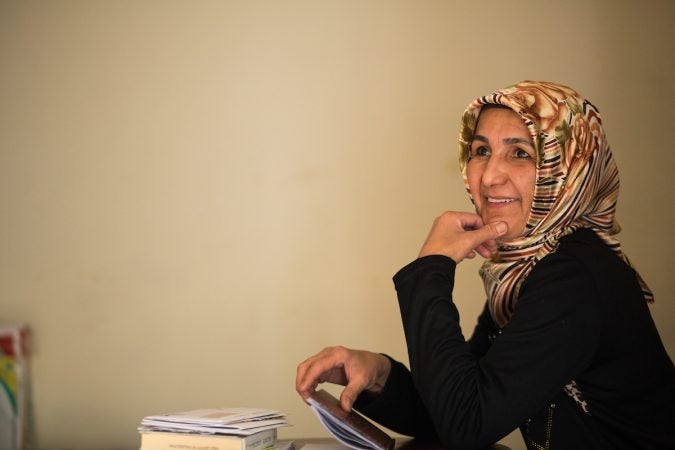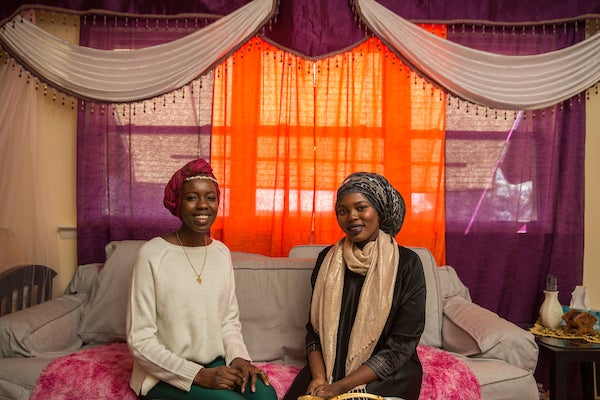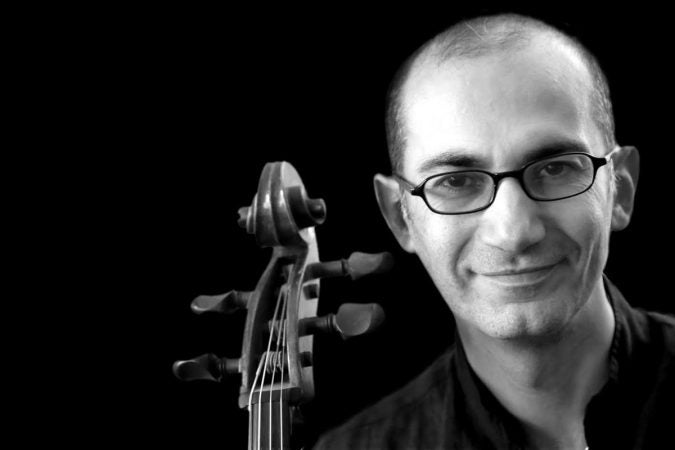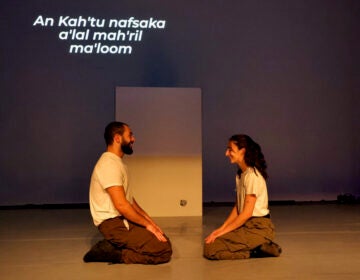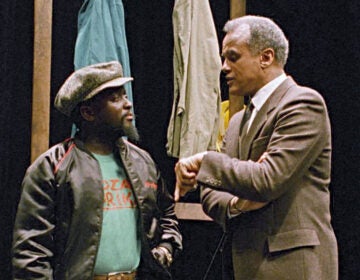(Dis)Placed Philadelphia wraps up art residency on being torn from home
Arab art residency concludes after 18 months with concert and exhibition.
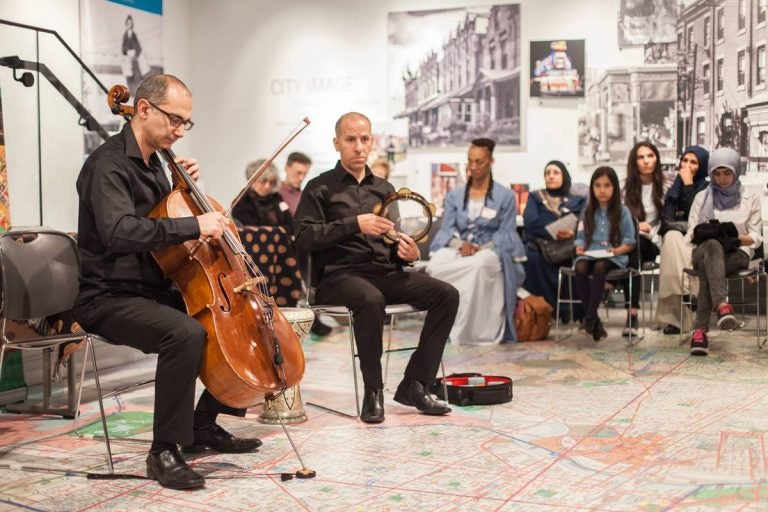
Syrian composer and cellist Kinan Abuo-afach, of "Of Roads and Homes" along with his ensemble (Chip Colson)
This weekend, an Arab arts organization in Philadelphia concludes an 18-month residency program involving Middle Eastern artists making work on the theme of immigration and displacement.
A lot can happen in a year and a half — and this artistic project has been buffeted by the political winds of the White House.
In the summer of 2016, Al-Bustan Seeds of Culture, an Arab arts organization operating since 2002, launched an ambitious program to bring together four artists from Arab countries: a Syrian composer living in Philadelphia; a Lebanese poet living in Washington, D.C.; a Tunisian muralist living in France; and a Syrian visual artist living in Syria.
That Syrian artist, Buthayna Ali, never made it, because of the travel ban imposed by the Trump administration early last year.
“Unfortunately, when we sent her an invitation to get her visa at the American Embassy in Beirut, they were not accepting applications,” said Hazami Sayed, executive director of Al-Bustan. “So, of course, we had to be creative about how to incorporate her presence and her work as part of this project.”
Al-Bustan arranged for Ali to give lectures and lead workshops through Skype.
The project, called (Dis)Placed: Philadelphia, is about the feeling of being uprooted — both literally and emotionally — from your home. It’s based largely on the recordings of 12 people who came to Philadelphia after fleeing war and oppression from Syria, Lebanon, Iraq, Sudan, Indonesia, Tajikistan, and other places.
Some participants came from California, Western Pennsylvania, even different neighborhoods within Philadelphia.
Stories of danger, perseverance
Similar narrative elements appear in their stories: keys to houses left behind long ago, still kept like talismans of a different life, and suitcases storing only mementos.
Some of the stories involve the peril of fleeing prosecution that likely could have ended in death, such as that of a journalist from Tajikistan who was convinced she and her daughters were in grave danger. Some stories are less dramatic, including one from a Palestinian born in New Jersey who keeps the stories of his ancestors alive through art and activism.
All of those stories informed Kinan Abou-afach, a Syrian composer and cellist who is a longtime collaborator with Al-Bustan. His eight-part suite, “Of Roads and Homes,” channels the feelings of fear, confusion, and loss into a musical arc.
He listened to the 12 recorded interviews and found similarities in their stories — typically beginning with feelings of home and peace ripped apart; moving through a journey of suffering; and ending on a note of hope.
“Everything related to displacement translated to images in my brain. It felt like a movie,”Abou-afach said. “It was like writing music for a movie.”
His long involvement with Al-Bustan roughly corresponds with the unrest and war in Syria. Living in Philadelphia for more than a decade, Abou-afach has felt an urgent need for the music he performs and composes to focus on the suffering of Syrians and the harrowing stories of refugees.
“Sometime it’s hard to see the beautiful part of their lives. I’m continuously living in this world of worry and stories of my homeland, Syria,” he said. “I’m interested to hear stories about being on the beach or having a family meal. Just a change of scenery.”
Abou-afach, with a seven-piece ensemble, will perform “Of Roads and Homes” Sunday at the Trinity Center for Urban life in Rittenhouse Square. He will be surrounded by work that resulted from the 18-month residency, including a published booklet of prose poetry by Nazem El Sayed on his Lebanese childhood in constant flight.
“I am a temporary man,” he writes. “I have inherited nothing but journeying.”
The concluding event of “(Dis)Placed: Philadelphia” will also feature images of a mural painted in West Philadelphia by Tunisian artist eL Seed and work created by artists — under Ali’s remote guidance — that’s based on suitcases and their contents.
WHYY is your source for fact-based, in-depth journalism and information. As a nonprofit organization, we rely on financial support from readers like you. Please give today.



